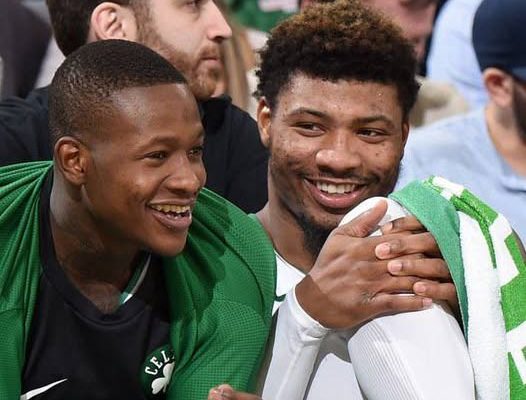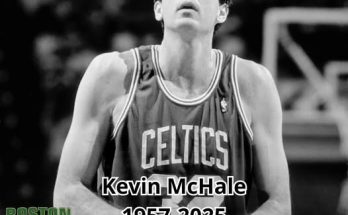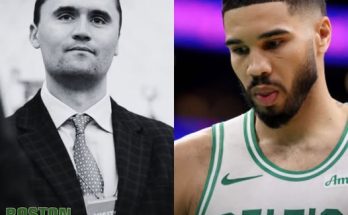The Miami Heat, an organization often praised for its front office shrewdness and strong culture, are facing an unexpected wave of backlash following reports detailing the intricacies of the Terry Rozier trade earlier this year. While at the time it was viewed as a strategic move to boost the Heat’s backcourt depth and offensive firepower, newly surfaced information has cast a shadow over the trade, prompting criticism from fans, league insiders, and even some within the organization. What began as a quietly accepted maneuver has now erupted into one of the more controversial transactions of the NBA season, stirring unrest in South Beach and raising questions about the team’s future direction.
The trade initially saw Terry Rozier acquired from the Charlotte Hornets in exchange for veteran point guard Kyle Lowry and a protected future first-round draft pick. On the surface, it was a classic Pat Riley move—swapping an aging floor general with a bloated contract for a younger, more dynamic scorer who could theoretically slide into a key role alongside Jimmy Butler and Bam Adebayo. Rozier, known for his shot creation and explosive scoring bursts, was expected to thrive in Miami’s system and offer much-needed relief to Butler, who continues to shoulder a disproportionate offensive burden. However, despite early optimism, things haven’t unfolded as expected.
The backlash intensified after a recent report from a well-connected NBA insider revealed that Rozier had been playing through a lingering knee issue even before the trade was completed. According to multiple league sources cited in the report, the Heat were allegedly made aware of Rozier’s physical condition during trade negotiations but chose to proceed anyway, banking on their renowned medical and training staff to manage the situation. While it’s not unusual for players to deal with minor injuries, the revelation that Rozier’s knee problems were already chronic has led many to question the risk management and transparency involved in the trade.
Fans have taken to social media to voice their discontent, accusing the organization of overvaluing Rozier and disregarding his health history in pursuit of a quick fix. Others are upset about parting ways with a first-round draft pick in what is expected to be a deep and talent-rich draft class. In an era where asset management is key to long-term success, giving up future capital for a player who may not be physically reliable is increasingly frowned upon. Many within the fanbase also question the decision to send away Kyle Lowry, who, despite his declining play, was still a respected locker-room voice and championship veteran with postseason experience.
The friction isn’t limited to the fans. Behind closed doors, some within the Heat’s own front office reportedly expressed hesitation before finalizing the trade. According to sources familiar with internal discussions, there were debates about whether Rozier was the right fit for Miami’s roster, both in terms of his playing style and long-term contract. With two years remaining on his deal at a significant salary cap hit, Rozier now represents a financial commitment that could limit the team’s flexibility in upcoming offseasons. As the Heat aim to remain contenders in an Eastern Conference that includes rising teams like the Indiana Pacers and reloaded squads like the New York Knicks, every roster and cap decision carries extra weight.
Adding fuel to the fire, Rozier’s on-court impact since joining the team has been inconsistent. While he has shown flashes of his trademark explosiveness and has had a few strong scoring nights, he’s also struggled to find his rhythm in Erik Spoelstra’s disciplined system. Defensively, Rozier’s effort has been there, but his size and style of play have made him a mismatch against bigger guards. In high-leverage games, he’s yet to establish himself as a reliable secondary or tertiary scorer, which is precisely what the Heat hoped he would become when they pulled the trigger on the deal. His shooting efficiency has also dipped, adding more ammunition to critics who claim the trade was shortsighted and poorly executed.
Even Heat stars have made subtle references to the growing pains. Jimmy Butler, never one to sugarcoat his opinions, commented in a recent interview about the need for “everyone to be accountable and understand the system before we make mistakes that cost us games.” While he didn’t name Rozier directly, the timing and context of his remarks led many to believe they were partially aimed at the new acquisition. Bam Adebayo, more diplomatic in his approach, emphasized that “it takes time to build chemistry,” but his guarded tone didn’t go unnoticed. The locker room, once heralded for its seamless cohesion, now seems to be navigating a period of adjustment filled with unspoken tension.
From a strategic perspective, the backlash has forced the Heat’s front office to confront the bigger picture. With an aging Butler and a team that has repeatedly come up short in the postseason despite spirited runs, the window for championship contention is narrowing. The Rozier trade, once seen as a low-risk, high-reward gamble, now appears to be a potentially costly misstep that may limit the team’s options if Rozier doesn’t bounce back to form quickly. Already, there are whispers around the league suggesting that the Heat could explore moving Rozier again in the offseason, though his trade value has likely taken a hit amid the reports about his knee and his lukewarm production.
Critics are also pointing to a broader pattern of aggressive, win-now decisions that haven’t panned out. In previous years, the Heat made bold moves for Victor Oladipo and Kyle Lowry—both of which had mixed results. While Miami’s culture of “Heat DNA” and “next man up” resilience has masked some of these front office missteps, the accumulation of questionable trades and free-agent signings is becoming harder to ignore. In a league where every decision is scrutinized under the microscope of salary cap mechanics and player longevity, the Rozier situation feels like a tipping point for an organization that has walked the fine line between brilliance and risk for over a decade.
Media analysts have not held back either. Several have called the move a classic example of overestimating a player’s fit without considering health and system alignment. On national shows and podcasts, hosts have debated whether the Heat are starting to lose their once-impeccable touch in roster construction. One former NBA executive went so far as to say that the Rozier trade “felt like desperation masked as aggression,” a damning indictment for a front office that prides itself on control and precision.
Despite all the criticism, it’s still early enough for Rozier to turn things around. He remains a talented scorer with the ability to heat up quickly, and Miami’s system has revived many careers in the past. However, the margin for error is smaller than ever. The Heat are in a loaded conference, and any misstep could mean the difference between another deep playoff run and an early exit. For Rozier, the coming months represent a critical proving ground—not just to justify his acquisition, but to rebuild trust within the franchise and the fanbase. For the Heat, it’s a chance to either silence the critics or reckon with a costly mistake that could reverberate for seasons to come.
As the trade report continues to make headlines, the Miami Heat find themselves in unfamiliar territory—not just defending a roster move, but defending the very processes that have defined their organizational success. Whether this is just a momentary bump in the road or the beginning of a deeper unraveling remains to be seen. One thing is certain: all eyes are on South Beach, and the pressure to deliver just got a whole lot heavier.



